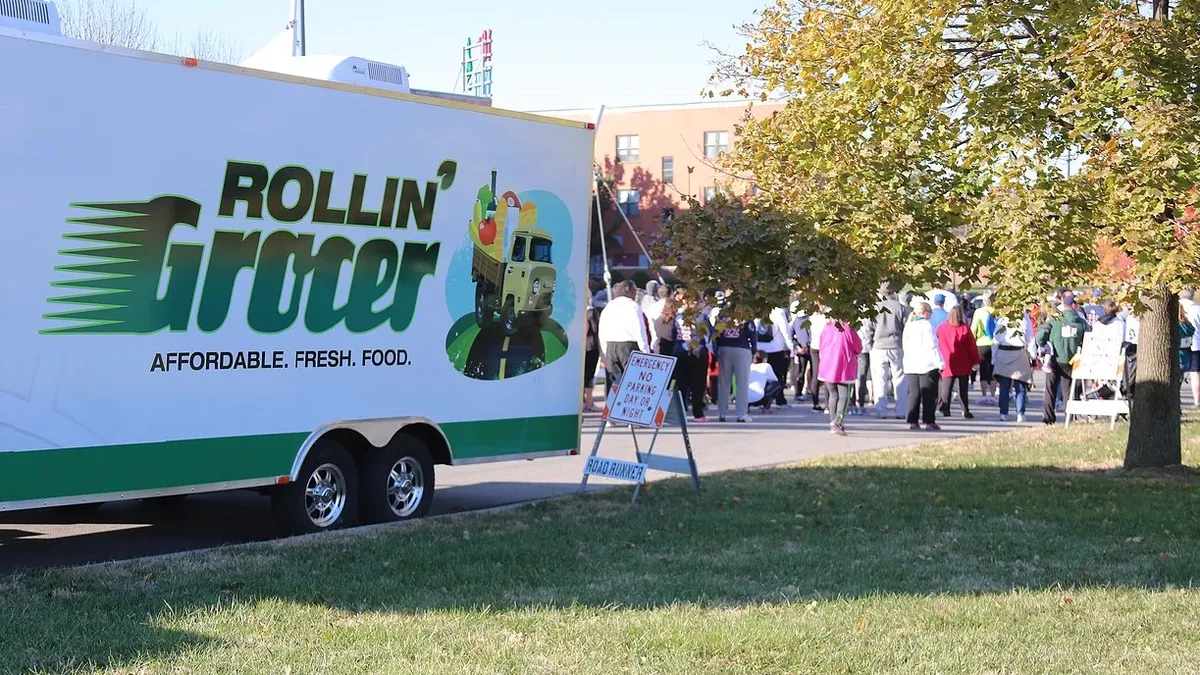Dive Brief:
-
Mobile grocery store Rollin' Grocer is serving a Midtown Kansas City community after the closing of two neighborhood grocery stores, Thriftway and Apple Market, created a food desert.
-
Food deserts, or areas where access to fresh fruits and vegetables is limited, are increasingly cropping up across the country – usually in poor neighborhoods.
-
Mobile grocers like Rollin' Grocer can be a short-term, partial replacement for brick-and-mortar stores until more permanent solutions are put into place for communities without access to grocery stores.
Dive Insight:
This model certainly works better in Kansas City than it would in places like SoHo, the upscale Manhattan neighborhood that recently became a food desert of sorts when its last full-scale grocery store closed because of rent increases.
Price hikes are becoming more and more of a problem for groceries in dense cities, as condos and apartments are seen as more lucrative. An ideal solution to the no-food store issue would be for cities to insist that landlords reduce then freeze food stores' rents. That, or declare certain curbside areas are, if only for a few hours a a day or week, for the exclusive use of rolling grocers.
It remains to be seen if mobile groceries like Rollin' Grocer can adequately fill these food gaps, or if consumers will turn to online grocery delivery to meet their food needs.








